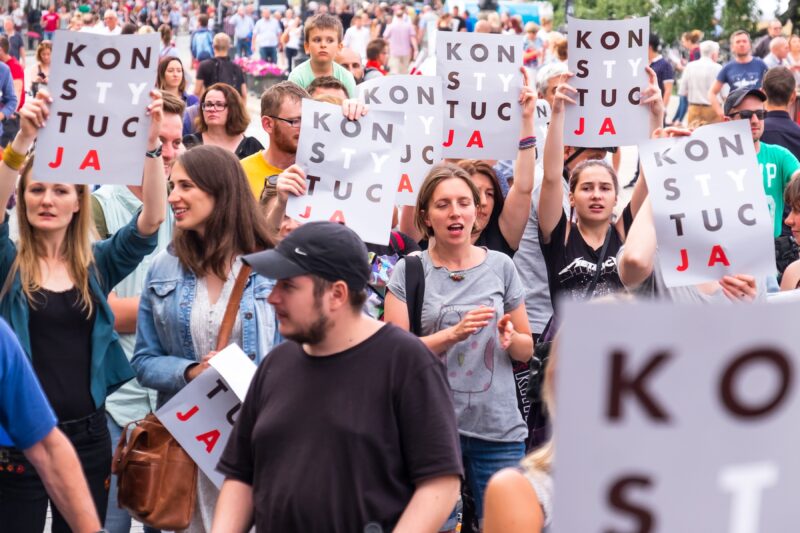There is no hotter talking point from the mouths of today’s politicians and businessmen than the ideal of meritocracy, a concept which, as an invisible and impersonal guiding principle, governs the ranking of the world’s population according to the merits and achievements of its members.
The elites know all too well what they are talking about, as they represent the most ideologically educated layer in today’s hierarchical society. They have a well-conceived interest in maintaining the validity of their cherry-picked theories from the repository of ideologies, and also in spreading them to the masses.
Meritocracy has joined the ranks of the most densely uttered spells on their part. Let’s take a closer look at the meaning, history, and essence of the meritocratic society’s philosophy, so we can examine how the economic, intellectual, and political leaders of the world are using it to govern people’s lives in today’s world.
The definition of meritocracy
Meritocracy as a compound word got its name by gluing together the Latin term merit, and the Greek word ’kratos’ (=strength, power). It refers to a political system where positions and most distributable goods in a given hierarchy can be won through the competition of individuals based on their measured performance. Among the Measures of performance are accumulated intellectual abilities (learning), physical exertion (diligence), innate talent, intelligence, or later achievements (proving worthiness).

An important criterion for the establishment of a meritocratic society is that the circumstances of an individual’s birth shall not affect his possibilities, so it does not matter what social class or family of wealth the person is born into.
A further condition for the development of meritocracy is that the merits have to be classified and categorized by some degree, so the individual can be placed into a position to which he is entitled when viewed from an “objective point of view”.
The history of meritocracy
The first philosopher to describe meritocracy was Plato, who, in his book “The Republic”, explained in detail the foundations of a society that prevailed on its merits, although the concept in its current form did not materialize until the 20th century. Aristotle used the term ’ethos’ to describe the common trait of persons striving for excellence through their diligence and ability to learn, a term which can be equated with the definitions of morality or inner strength as we know it today.
The first meritocratic society was the ancient China. In the 6th century BC, Confucius’s methodology for organizing the state was the selection of governors through their perceived moral strength, as opposed to the system of succession that was the common practice at that time, and continued to be for centuries with the few exceptions mentioned. Suitability for certain positions was decided by tests made by the bureaucrats of the time. An adequate performance on these have led individuals craving for control to their desired velvet chair.

The ideal of Confucianism has served China for several more centuries. Around 200 BC, the Han dynasty elevated Confucius’ philosophy into a political creed. Instead of blood lineage, the nobility was filled with hand-picked individuals who had to meet certain conditions of moral strength and sincerity, characteristic of the given age. Anyone who passed the screening exams received a government position along with generous benefits.
The idea of meritocracy then fell asleep, and for almost two thousand years it couldn’t be heard of. A strange fact is that meritocracy – which was still not being called as that – was revived by the emerging early capitalism. Through the British colonial empire, the forgotten ideal could sail back to the old continent.
The infamous British East India Company, the world’s first modern corporation, conducted its recruitment of workforce through selection between competing applicants, according to the official mantra, in order to prevent the proliferation of corruption and nepotism.
Through this company, the institution of modern meritocracy was able to row from the colony of India to the European motherland. From the eighteenth century onwards, the British Empire replenished its civil service staff in a manner inherited from the British East India Company. Managers, leaders and employees assigned to promotion were selected for available positions after an evaluation of performance.

Meritocracy has brought some refreshment to the minds of intellectuals preoccupied with state philosophy. John Stuart Mill, in his book “Considerations on Representative Government”, saw the reform of democracy in the possibility of higher educated people gaining more voting rights.
Although only sproadically, but meritocratic societies have emerged around the whole world. Osei Kwadwo, the king of Ghana between 1764-77, selected his confidants around him based on their abilities. In Australia, the first public university opened its doors in 1850 to ensure the training of students who showed great promise from a meritocratic point of view.
In the UK, the first modern system of oligarchy was developed afterwards, which institution is a fundamental and indispensable building block of today’s meritocracy. From 1828 onwards, elected presidents gave seats of higher positions to their own confidants: their buddies, relatives, dorm roommates, with whom they could carry out the domination of the entire state administration in a cohesive and harmonious manner. The system was ended in 1881 by the assassination of James A. Garfield: a furious and disappointed position-seeker shot him down.
Meritocracy today

As I repeatedly mentioned, at the time of the above mentioned events, the term ’meritocracy’ did not yet exist. It was brought to life only in 1958 by science fiction writer Michael Dunlop Young. In “The Rise of the Meritocracy”, he mocked the tripartite education system that at the time was rampant in the UK through lifting it over to a dystopian setting. The work has caused such a huge scandal that after a decade and a half, the entire system got thrown out the window and replaced with the general system of public education, which has become more and more widespread at that time.
The tripartite education system essentially covered three different school systems. By preschool, it was already decided which one the future student would be a part of. In grammar schools, future intellectuals and academics were trained, who would also become contenders for political positions. Below them laid a dense network of technical schools, where service personnel, scientific assistants and state officials were made. Finally, modern schools were the training grounds of the proletarian army, pouring skilled and trained workers into the market.
These institutions outlined meritocracy as the sum of intelligence and diligence. At the age of 6, an admission test was taken to decide what a child could become by adulthood.
“The Rise of the Meritocracy” takes place in 2034. By that time, through the universalization of tripartite eucation (and the extinction of previous generations raised under a different system), a society had been built in which positions of power can be held exclusively by those who have undergone the highest level of education. As their position is quasi concrete proof, and the system is putting them in velvet chairs early on, they are essentially doing what they want with the whole society. Rather than making it better, their sole action is to exalt their own rank and oppress everyone else. The working class, demoralized, pushed down and humiliated, is being forced to spark a revolution in order to alleviate the unbearable situation.

In its theory, meritocracy stands in opposition to the traditional aristocracy, where wealth and rank are decided by the birth lottery, but also oligarchy, where personal, friendly and buddy relations, organized along the wishes of a ruling class reigning through its wealth, regulate the functioning of the world.
Several people have realized through the analysis of Michael Dunlop Young’s work that meritocracy, as well as the concept of ethos inherited from Aristotle, nevertheless bears a closer kinship to the system of aristocracy and oligarchy rather than to the modern state, where, at least on the level of rhetoric, they actively seek ways to smooth out social and economic inequality.
Despite all these concerns and warnings, meritocracy had become an universal political and economic guiding principle by the second half of the 20th century. Masses of politicians repeatedly chanted the mantra that the number one condition for achieving prosperity within society shall be an equitable and fair selection mechanism, where, instead of innate position and wealth, everyone prevails according to his or her performance. The ideal of even playing field guarantees rank and recognition through efforts based on the abilities and intelligence of the individual.
„We are true to our creed when a little girl born into the bleakest poverty knows that she has the same chance to succeed as anybody else …”
– Barack Obama, inaugural address, 2013

„We must create a level playing field for American companies and workers.”
– Donald Trump, inaugural address, 2017
Meritocracy in practice
Based on Aristotle’s concept of ethos, the number one stage for the demonstration of merit is publicity, where talented individuals get the opportunity to prove their knowledge and abilities. The forum of publicity at the time was the agora, which is analogous to today’s marketplaces, figuratively to the system of free market capitalism.
Here, the belief system of meritocracy guarantees two things at once. On one hand, it nominally separates wealth and rank. Those who are rich do not necessarily intend to obtain power, and the powerful lawmakers must settle for a decent middle-class level salary if they do not wish to use their talents for generating economic output in addition to their legislative impulses.
On the other hand, it elevates diligence. Not just a healthy work ethic, but its most depraved form, the hustle culture, which we might as well call as hasty culture. Although diligence does not fully replace talent and intelligence, it partially compensates them. This way, theoretically, even less intelligent or self-effacing individuals have the chance to succeed, they just have to put more work into the system than everyone else.

This process, although seemingly impersonal, turns itself into a self-excitatory system.
Today, meritocracy has failed, but its ideal continues to hold its rock solid position in the minds of the fanatical fanbase. They have been so infected by meritocracy that they do not realize that schools are now mostly training depressed suicide candidates. Prisoners locked into workplaces seek ways to passively undermine their participation (see jobhopping, great resignation, quiet quitting and other emerging trends from the past years) instead of striving for promotion.
What happened to meritocracy that, despite all its triumphal journeys, it could turn to ashes in the arena of reprogramming the human mind?
















